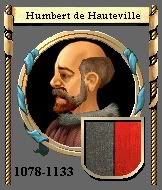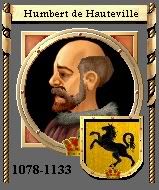Rudger was a young man. Not even a young man, little more than a boy. But he was a boy who knew his place.
He was Rudger von Nordheim, Arch Duke of Bavaria (his title having been "elevated" by his Chancellor following the defeat of the German King for better prestige).
He was 9 years old and had inherited a Duchy only recently at peace. The death of his father had been quite a shock for young Rudger. It left the Duchy in turmoil, as the Duke had been talking for over a year about skipping Rudger and making his younger son heir. Sadly, the Duke died before enacting the change, and Rudger became Duke.
Following the advice of the Steward, Rudger dispersed most of the money his father had saved building improvements all around the Duchy. This draining of the treasury seemed like a wonderful idea at the time and allowed Bavaria to build schools and other improvements that delighted the young man.
Following this buildup, the Spy Master brought news to Rudger's attention: The Duke of Steirmark, neighbor to the Arch-Duchy of Bavaria, was becoming more and more disenchanted with the rule of the German King.
Could we have them as a vassal? asked the young Duke.
Sadly no, the Spy Master advised,
though we all know you to be greater than a mere Duke, the other rulers in the area would never accept a Duke bowing to you. At the Spy Masters suggestion, papers were forged showing that, centuries ago, Rudger's ancestors had ruled Steirmark. It was a poor job of forgery and no one would ever allow him to rule Steirmark... unless he took it by force, and then people wouldn't object too loudly.
You see, my Young Duke, when Steirmark declares war on Germany, we will offer our assistance and put the revolt down... we will simply neglect to leave when we are done. This sounded like an excellent idea, and the youthful Arch-Duke agreed to it at once.
Passing through the halls of the castle though, the young Arch-Duke began to hear disturbing rumours. The Arch Duke was getting a small reputation from his actions that bespoke him being a warmonger. His desires, it was said, ranged to the top of the Empire.
More disturbing still was a rumour that the Steward (
see below) had embezzeled nearly 500 gold from the treasury! The Young Archduke was powerless to do much about it, but was chilled how little control he had over his own court.
The Archduke, now fully aware of how he had been manipulated, considered his next actions carefully. Praying for guidance, the Archduke asked the local Bishop what he could do to put down the rumours of his warmongering desires. At the suggestion of the Diocese Bishop, the Bishoprics of Salzburg and Cheb were invested and the Archduke became known as an amazingly pious man. So much so that when the next Pope was named, Rudger was in Rome at the special request of the Cardinals. While he did not become a "Special Advisor" to this Pope, there was little doubt in any of the nobles present that Rudger was destined to be looked upon kindly by the Papacy.
Following a blatant act of stupidity on the part of the Steward, Rudger decided that it was a fine time to become a man. He stripped the steward of his title and elevated a new steward. This event was later seen as the time when the young Archduke, though still considered underage, would fully become the Archduke in fact and not merely in name.
Luckily for the Archduke, the King of Jerusalem, the Archduke's cousin by marriage, took the plight of his stepmother's homeland seriously and sent a small gift to repay some of the damage to the Bavarian treasury. It was noted, of course, that the King of Jerusalem's stepmother was now married to ... ex-Steward von Wangen following the death of the King of Jerusalem's father.
Now that the Archduke was feeling very confident, a thought occurred to him. Germany was at war with Poland, Naples, Denmark, the Kingdom of Flanders (styling himself "King of North Africa" though he controlled little of Africa) and even the Kingdom of Castille.
The Archduke did what any young man would do: He declared war on the Duchy of Steirmark. Barely mobilizing two of his own regiments and 2 of his vassals, the Archduke commanded his legions off to war. Steirmark was quickly dispatched, making the Archduke also count of Steirmark. This situation lasted only days before the Chancellor sent a missive to the heads of state in Germany noting that, since the Duchy of Steirmark had been vacated by the pretenders to the rightful lands of the Duchy of Bavaria, henceforth Rudger would be known as "His Grace the Archduke of Bavaria and Steirmark". Spreading enough gold around got the message across, and prestige was gained in the eyes of the nobles.
That left only one minor problem: The Archduchy was still at war with Germany. Mobilizing his regiments, the Archduke sent his forces to invade the German possessions in Bohemia only to be overtaken by the forces of Castille. Knowing the a german Archduke would never be able to lead a siege where the King of Castille y Leon y Aragon y every other Iberian land was present, the Archduke used his subtle skills and noticed that the siege of the county of Brabant was led by a lowly court functionary. Quickly a request was sent to the count of Julich (who was, by title, a vassal of the Archduke of Bavaria). The Count saw the good in the idea and sent his regiment across the border. The Castillian functionary was completely flustered by the arrival of the Count and allowed the Bavarian noble to lead the assault on the county.
With the collapse of resistance in Brabant, Werner King of Germany again was forced to acknowledge that the Archduke of Bavaria had out-guiled him again. The Archduke of Bavaria was again at peace.
Rumours began to fly in the Bavarian court, however. It seems that the Polish King had a pagan Chancellor! Agast at the thought, the Pope had
excommunicated the Polish King! The vassals of the King of Poland were becoming unhappy and the Duchy of Mazovia had even revolted!
A quiet note arrived from the Polish King begging for intercession. Knowing the standing that the Archduke (a mere boy at 13!) had with the Pope, the King needed help and was quick to remind the young Archduke of the role played by Poland in the first war against Germany.
Sadly however, the Archduke had no such control over the Pope. It was said that the Count of Vermanadois stood in higher staid with this Pope. Tragically, word soon reached the Bavarian court that the Count of Vermanadois had fallen from the highest tower in his castle. How his head came to be severed so cleanly and why he bound himself hand and foot before throwing himself from the tower remains quite the mystery. There was also the question, of course, as to why the guards that night had never been seen in the castle before or since, and also why they spoke Polish. Some questions, however, were best not answered.
With the Count of Vermanadois no longer a factor, the youthful Archduke was soon seen as the mouthpiece of the Pope. After some minor intercession, the Pope acknowledged he may have been too hasty in excommunicating the Polish King. The blame was placed on an overzealous local chaplain who was quietly transferred to Rome, and the King was again allowed to take communion and receive the blessings of God.
So it stands that the His Grace the Archduke of Bavaria and Steirmark, Advisor to His Holiness the Pope, has taken his small Duchy to world fame.
All while still an underage ruler.








